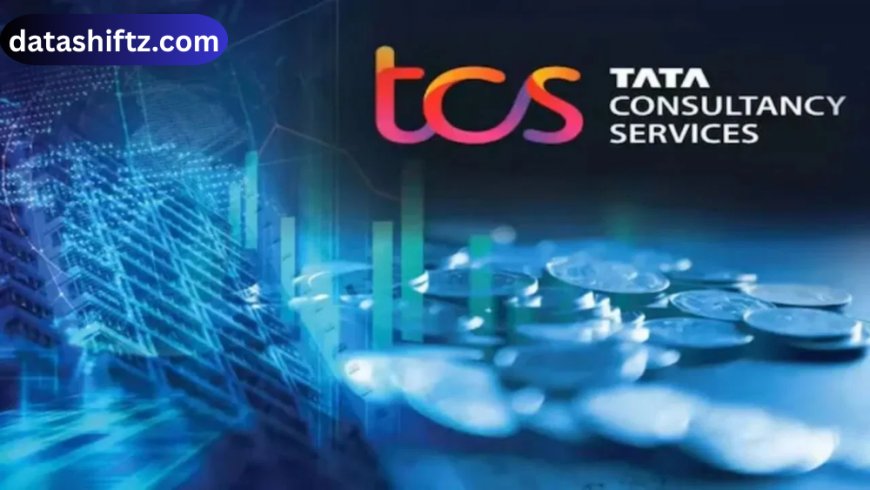TCS Layoffs Severance Packages: Understanding the Impact and Future of IT Workforce

Introduction
In recent years, India’s IT sector has witnessed major changes, with technology evolving rapidly and companies adapting to shifting global business demands. Among these developments, Tata Consultancy Services (TCS)—one of India’s largest IT firms—has also faced challenges that led to layoffs and discussions around severance packages. While layoffs are not new in the global IT ecosystem, they become particularly sensitive when it involves a company like TCS, known for its employee-centric culture and job stability.
The issue of layoffs and severance packages raises several critical questions: How does it affect employees? What measures does TCS take to balance business needs with employee welfare? And what are the broader implications for India’s IT workforce?
This article explores TCS layoffs, the structure of severance packages, industry reactions, and the way forward for employees and organizations.
TCS Layoffs: Why Are They Happening?
TCS, like many IT giants, periodically reviews its workforce to match business requirements. Several factors have contributed to layoffs in the company:
-
Global Economic Slowdown – Weakening demand from global clients, especially in banking, retail, and manufacturing sectors.
-
Automation and AI – With more reliance on automation, artificial intelligence, and cloud-based systems, some roles have become redundant.
-
Cost Optimization – To maintain competitiveness, companies reduce expenses by streamlining non-critical roles.
-
Skill Gaps – Employees without updated skills in digital technologies, AI, or data analytics face higher risk of layoffs.
-
Geopolitical Tensions – Global uncertainty, visa restrictions, and trade conflicts impact outsourcing contracts.
Though layoffs are usually limited compared to global peers, their impact on employees sparks debate about fairness and severance practices.
Severance Packages at TCS
When employees are laid off, severance packages become a crucial safety net. A severance package typically includes compensation, benefits, and career transition support to help employees during unemployment.
What Severance Usually Includes at TCS:
-
Notice Period Pay – Compensation for the contractual notice period (generally 1–3 months).
-
Lump-Sum Settlement – In some cases, an additional payout based on tenure or role.
-
Leave Encashment – Payment for accumulated paid leaves.
-
Provident Fund & Gratuity – As per statutory guidelines.
-
Medical Benefits – Temporary continuation of healthcare coverage.
-
Outplacement Assistance – Guidance for reskilling or career transition.
However, the exact details vary depending on role, location, and circumstances of termination.
Industry Reactions and Employee Concerns
Layoffs in India’s IT industry often spark debate because companies like TCS traditionally promote long-term job security. Employee unions and labor organizations have criticized layoffs, calling them inconsistent with Indian labor practices.
Concerns raised include:
-
Lack of transparency in selection criteria for layoffs.
-
Insufficient severance compared to global IT firms.
-
Emotional and financial stress on mid-level employees with family responsibilities.
-
Perception of being “replaceable” in a company once known for employee loyalty.
At the same time, industry experts argue that layoffs are necessary for companies to stay competitive in a dynamic global market.
TCS Layoffs & Severance Packages
| Factor | Details |
|---|---|
| Main Reason for Layoffs | Automation, cost optimization, skill mismatch, global slowdown |
| Affected Roles | Mid-level employees, support functions, legacy technology specialists |
| Severance Package Components | Notice period pay, lump-sum settlement, leave encashment, PF, gratuity |
| Typical Notice Period | 1–3 months (role-dependent) |
| Additional Support | Outplacement, reskilling initiatives, limited healthcare continuation |
| Employee Concerns | Transparency, adequacy of severance, job security, emotional stress |
| Industry Outlook | More automation-driven workforce restructuring |
Impact on Employees and Industry
1. Employee Perspective
For employees, layoffs can be disruptive and emotionally draining. Mid-level professionals with 10–15 years of experience often find it difficult to reskill quickly. Severance packages provide temporary relief but may not fully compensate for long-term uncertainty.
2. Company Perspective
From TCS’s viewpoint, layoffs are part of workforce restructuring aimed at aligning with future technology. By investing in automation, cloud computing, and AI, TCS strengthens its global competitiveness.
3. Industry Perspective
TCS layoffs mirror a larger industry trend where IT firms globally are reducing headcount in traditional roles and hiring in digital-first domains. Companies like Infosys, Wipro, and HCL face similar pressures.
Advantages of Severance Packages
-
Provides immediate financial support after job loss.
-
Ensures compliance with labor laws and contractual obligations.
-
Helps employees transition without abrupt income disruption.
-
Enhances company reputation despite layoffs.
-
Reduces legal risks for the organization.
-
Supports employee morale during restructuring.
-
Encourages smoother exit and reduces disputes.
-
Helps laid-off employees focus on reskilling.
-
Provides continuity in benefits like healthcare.
-
Builds trust in employer branding, even in difficult times.
Challenges in Severance Practices
While severance packages are intended to cushion the blow of layoffs, several challenges exist:
-
Variability in Benefits – Packages differ across roles and levels, creating dissatisfaction.
-
Global vs. Indian Standards – Severance in India is often less generous compared to U.S. or European practices.
-
Short-Term Relief – Compensation usually lasts only a few months, not enough for long reskilling.
-
Reskilling Gap – Employees may lack immediate access to advanced digital training.
-
Legal Complexity – Disputes arise regarding contract terms and voluntary vs. forced exits.
The Way Forward for TCS and IT Workforce
-
Transparent Communication – Clear explanations of layoff reasons and criteria reduce mistrust.
-
Enhanced Severance – Offering longer financial support and extended healthcare coverage.
-
Reskilling Investments – Providing mandatory digital training before considering layoffs.
-
Flexible Redeployment – Moving employees to new projects instead of immediate termination.
-
Career Transition Support – Partnering with job portals and training companies for smooth transitions.
For employees, focusing on continuous learning in areas like cloud computing, AI, cybersecurity, and data science is critical to staying relevant in the evolving IT landscape.
Conclusion
The issue of TCS layoffs and severance packages reflects the balancing act between business efficiency and employee welfare. While layoffs are difficult and often criticized, severance packages act as a cushion to help employees during the transition. For TCS and the wider IT industry, the challenge lies in implementing fair, transparent, and future-ready policies that protect employees while enabling companies to adapt to technological disruption.
Ultimately, the future of India’s IT workforce will depend not only on company policies but also on employees’ ability to reskill and adapt in an era where automation and AI are reshaping the very foundation of work.





























